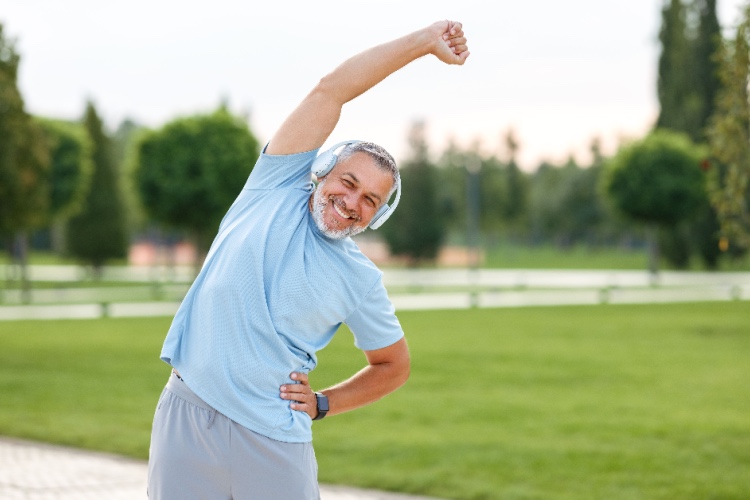
When the summer sun shines bright, it’s time for fun and outdoor activities. However, for seniors, this season brings unique challenges, particularly concerning heat safety. Understanding these risks and taking proactive steps to mitigate them is crucial for embracing summer safely.
Table of Contents
- Recognizing Heat-Related Illnesses
- Hydration and Nutrition
- Skin and Sun Protection
- Embracing Summer Safely with Blue Moon Senior Counseling
- Frequently Asked Questions
Recognizing Heat-Related Illnesses
Heat-related illnesses are medical conditions that result from the body’s inability to cope with heat. Seniors and their caregivers should recognize the signs of these illnesses, which can escalate quickly if untreated. Additionally, knowing how to respond to heat-related emergencies can help prevent serious health outcomes.
Heat Exhaustion
This condition is the precursor to heat stroke. Symptoms include heavy sweating, weakness, cold, pale, and clammy skin, fainting, vomiting, and fatigue. Heat exhaustion can develop into heat stroke if not addressed promptly by moving to a cooler environment and rehydrating.
Encourage the person to rest in a cool, air-conditioned place and drink water or a sports drink. Loosen or remove unnecessary clothing.
Heat Stroke
This is the most severe form of heat-related illness and a medical emergency. Symptoms include confusion, altered mental states, absence of sweating, hot and dry skin, a rapid heartbeat, headache, nausea, and a high body temperature (104°F or higher).
Call 911 immediately—this is a medical emergency. Move the person to a cooler place and help lower their body temperature with cool cloths or a cool bath. Do not give fluids if the person is unconscious or semi-conscious.
Heat Cramps
Often occurring in the legs, arms, or abdomen, these are sharp pains that may happen during or after physical activities in hot environments. They are caused by the loss of body salts and fluid during sweating. Drinking water and resting in a cool place can help relieve them.
Have the person drink a beverage that contains electrolytes. Gently stretch and massage the affected muscle.
Heat Rash
Commonly known as prickly heat, it appears as red clusters of small blisters that look like pimples. It’s more likely to occur on the neck, chest, groin, or in elbow creases.
Keep the affected area dry and stay in a cool, dry environment. Over-the-counter creams can help ease discomfort.
Hydration and Nutrition
During the hot summer months, staying hydrated and maintaining proper nutrition are essential, especially for seniors who may be more susceptible to the effects of heat and dehydration. Proper hydration and a balanced diet can significantly affect a senior’s health, energy levels, and overall ability to enjoy the summer safely.
Importance of Hydration
Hydration is critical for seniors because dehydration can trigger various health issues such as urinary and kidney problems, electrolyte imbalances, and even increased risk of falls. Here’s why keeping hydrated is particularly important:
Regulates body temperature: Adequate hydration helps maintain normal body temperature. In hot weather, the body loses water through sweat, and replenishing this water is crucial to avoid heat-related illnesses.
Enhances physical function: Dehydration can lead to decreased strength, reduced endurance, and slower reaction times, which can impair mobility and safety.
Supports cognitive function: Even mild dehydration can affect cognitive functions, including concentration, alertness, and short-term memory, which are vital for daily living activities.
Research also shows that if you’re thirsty, you are already dehydrated.
Nutritional Needs in the Heat
Nutritional needs can change with the weather. During summer, heavy meals can feel burdensome and exacerbate heat stress, whereas lighter, nutrient-dense foods can provide energy without overwhelming the digestive system.
Summer-friendly foods: Include plenty of fruits and vegetables that have high water content. Melons, cucumbers, tomatoes, bell peppers, and berries are excellent choices. These foods not only help with hydration but also provide essential vitamins and minerals.
Avoiding heavy meals: Opt for smaller, more frequent meals rather than three large meals. This can prevent the body from generating excess heat during digestion. Focus on salads, smoothies, and cold soups like gazpacho.
Supplements and vitamins: Summer may also require adjustments in vitamin intake, especially if indoor activity levels increase and exposure to sunlight decreases. Vitamin D supplements might be necessary, and a healthcare provider can offer personalized advice based on individual health needs.
Practical Hydration Tips
Ensuring adequate fluid intake can be challenging, but here are some practical strategies to help seniors stay hydrated:
Keeping water accessible: Always have a bottle of water within reach. Consider using bottles with marked levels to monitor how much you’re drinking throughout the day. Avoid alcohol and caffeinated beverages.
Hydrating foods: Incorporate foods with high water content into every meal. These can be particularly refreshing during the heat and contribute significantly to overall fluid intake.
Monitoring fluid intake: Keep track of how much liquid is consumed daily. A general guideline is to aim for about eight 8-ounce glasses of water per day, but this can vary based on individual health, level of activity, and specific medical advice.
Flavoring water: For those who find plain water unappealing, adding natural flavors like lemon, lime, cucumber, or mint can make it more enticing and encourage regular consumption.
Communication with Health Providers
It’s vital for seniors and their caregivers to maintain regular communication with healthcare providers regarding hydration and nutrition, especially during the summer months. This dialogue ensures that any adjustments to diet or hydration strategies are safe and appropriate given the individual’s health status and any medications they might be taking. Here are some points to consider:
Regular consultations: Regular check-ups can help adjust dietary needs as the season changes. This is also a good time to discuss any concerns about water intake or summer-specific nutritional needs.
Medication reviews: Some medications can increase dehydration risk or require dietary adjustments. Regularly reviewing these medications with a healthcare provider is crucial to managing their effects during the summer. The FDA has put together a list of medications that can cause sensitivity to the sun. Still, it is important to consult with a healthcare provide first before stopping or reducing any medication intake
Utilizing telehealth: For seniors who find it difficult to visit a doctor in person, telehealth services can be an excellent way to discuss their hydration and nutritional needs without having to travel.
By focusing on hydration and nutrition, seniors can significantly improve their comfort and health during the summer. These strategies are not just about avoiding dehydration but enhancing overall well-being and enabling seniors to enjoy the season to its fullest.
Skin and Sun Protection
The sun’s rays are particularly strong during the summer months, posing risks such as sunburn, skin damage, and increased risk of skin cancers. Seniors’ skin is generally more fragile and has less natural protection against UV radiation due to thinning skin and other age-related changes. According to the National Cancer Institute, skin cancer is on the rise in the U.S. Effective skin and sun protection strategies are essential to maintain skin health and prevent complications.
UV Risks
Ultraviolet (UV) rays from the sun can be harmful to the skin, especially for seniors who may have more delicate skin due to age. Here’s what to know about UV risks:
Types of UV rays: There are two main types of UV rays that can harm your skin—UVA and UVB. UVA rays can prematurely age your skin, causing wrinkling and age spots. UVB rays can burn your skin. Too much exposure to either can cause skin cancer.
Effects on elderly skin: As we age, our skin loses fat and water content, becoming thinner and less able to protect itself. Elderly skin also repairs itself more slowly than younger skin, increasing the risk of prolonged damage.
Link to skin cancer: Seniors are at a higher risk for skin cancers due to cumulative exposure to UV rays over their lifetime. Regular checks for new growths or changes in existing moles, freckles, or spots are crucial.
Sunscreen and Protective Clothing
Using sunscreen and wearing appropriate clothing are simple yet effective ways to protect skin from harmful UV rays.
Choosing the right sunscreen: Look for broad-spectrum sunscreens that protect against both UVA and UVB rays, with an SPF (Sun Protection Factor) of 15 or higher. Apply liberally and reapply every two hours, or more often if sweating or swimming. Also, make sure that the sunscreen you are using hasn’t been recalled!
Clothing and hats: Wear long-sleeved shirts, long pants, and wide-brimmed hats made from tightly woven fabric to protect as much skin as possible. Some clothing is specifically designed with UV protection and can be especially useful.
UV-protective accessories: Sunglasses with UV protection help shield your eyes and the delicate skin around them from sun damage. Look for sunglasses that block at least 99% of UVB rays and at least 95% of UVA rays.
Safe Sun Practices
Adopting safe sun practices can significantly reduce the risk of skin damage and improve overall health during the summer.
Best times to be outdoors: The sun’s rays are strongest between 10 a.m. and 4 p.m. Schedule outdoor activities for early in the morning or later in the afternoon beyond these peak hours.
Shade and sun avoidance: When outside, try to stay in the shade as much as possible, especially during midday hours. Portable umbrellas and pop-up tents can provide necessary shade when natural shade is not available.
Regular skin checks: Seniors should perform regular self-examinations of their skin for new growths or changes in existing moles, freckles, or spots. Annual check-ups with a dermatologist are also recommended to assess any suspicious changes.
Embracing Summer Safely with Blue Moon Senior Counseling
The summer months offer a wonderful opportunity for enjoyment and outdoor activities, but they also bring unique challenges, especially for the elderly. At Blue Moon Senior Counseling, we believe in empowering our clients and their families to take proactive steps to ensure safety during the summer.
Don’t let the summer heat take a toll on your or your loved one’s health and well-being. Our telehealth services make it easy and convenient to access professional counseling from the comfort of your home. Reach out to us today at (630) 896-7160 or fill out our contact form here!
Frequently Asked Questions
- What are the common signs of dehydration in seniors?
Key signs include increased thirst, dry mouth, reduced urine output, confusion, and fatigue. It’s crucial to address these symptoms promptly to avoid severe complications.
- How can seniors exercise safely during the summer?
Seniors should exercise in the cooler times of day, wear breathable clothing, stay hydrated, and consult healthcare providers before starting new activities.
- What are the best practices for medication management in the heat?
Store medications in a cool, dry place and check their storage requirements. Discuss with healthcare providers if adjustments are needed during summer.
- How should a senior prepare for a summer heatwave?
Prepare by ensuring access to a cool environment, stocking up on water and easy-to-eat foods, and keeping a list of emergency contacts handy.










